| | In this edition: Trump’s tariff chaos, Modi’s Africa ambitions, how heat waves impact the continent,͏ ͏ ͏ ͏ ͏ ͏ |
| |   Pretoria Pretoria |   Windhoek Windhoek |   Nairobi Nairobi |
 | Africa |  |
| |
|
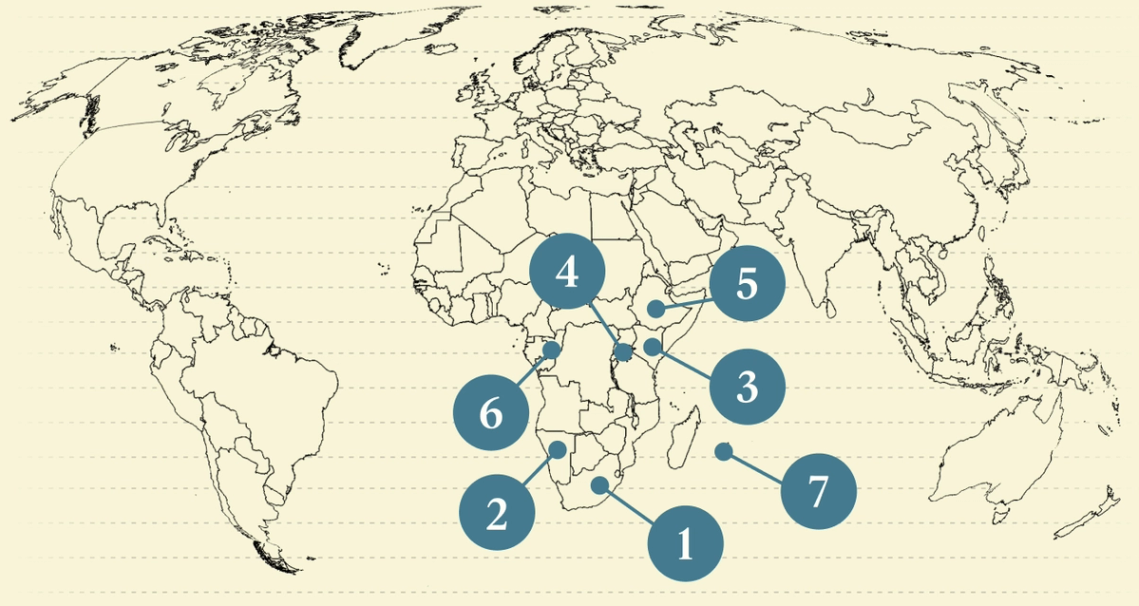 - Trump’s tariff chaos
- Modi’s Africa inroads
- Could AI subvert stereotypes?
- Kigali faces new M23 claims
- Ethiopia’s $1B deal
- Toll of heat waves
- The Week Ahead
 Remembering a great South African jazz trumpeter. |
|
Trump’s tariff chaos grows |
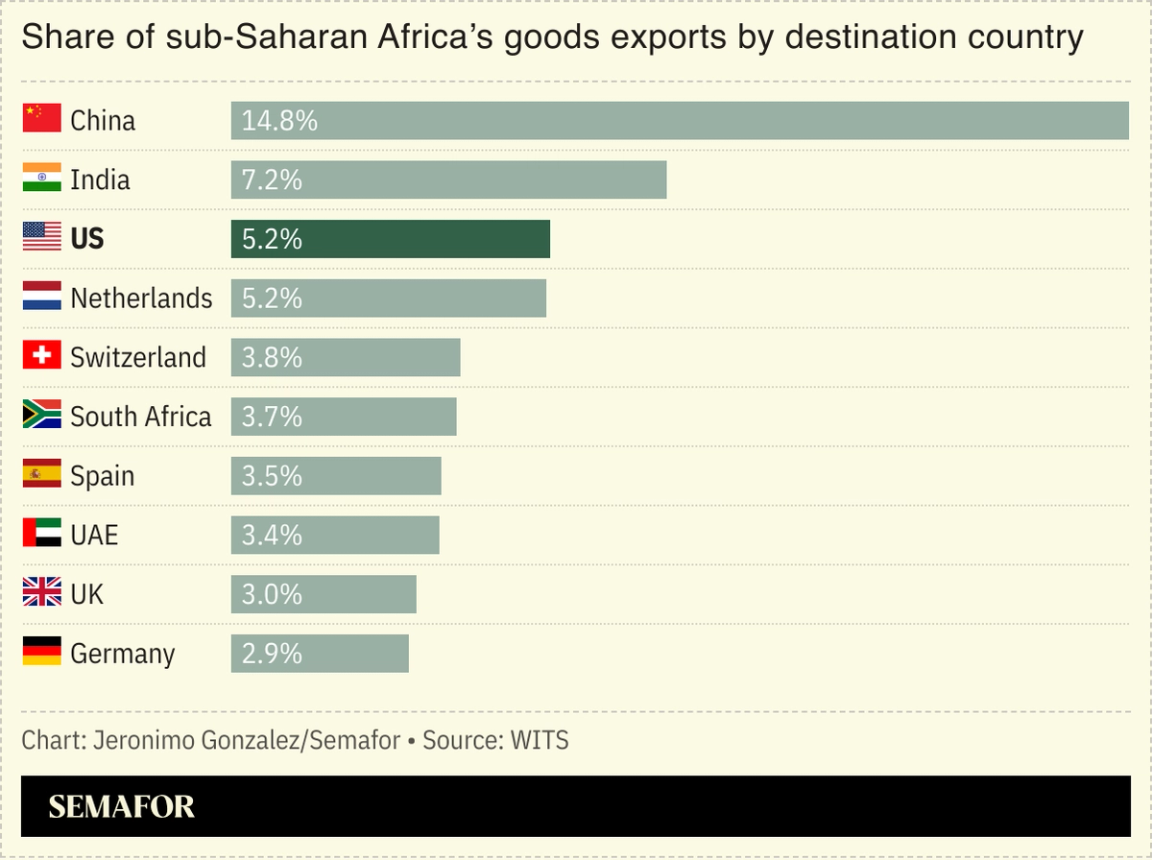 African countries braced for the fallout from US President Donald Trump’s threatened tariffs as he warned of an additional 10% levy on countries allied to the BRICS bloc. The White House will today deliver the first set of letters outlining new, unilateral tariff levels, with a three-month reprieve set to expire on Wednesday: The new duties will come into effect on Aug. 1, and could be as high as 70%, the American president said — higher than any of his “Liberation Day” levies. “Any country aligning themselves with the Anti-American policies of BRICS, will be charged an ADDITIONAL 10% tariff,” he posted on social media on Sunday. Alongside South Africa, Egypt, and Ethiopia are members of the bloc. The proposed tariffs are already upending Africa’s agriculture industry, forcing countries to adapt. In South Africa, the world’s second-biggest producer of citrus fruits, growers fear the fallout of a 31% US levy. Meanwhile soy producers in Ethiopia have been somewhat bolstered by a new export agreement with China. The uncertainty unleashed by shifting US trade policy comes as Trump prepares to host the leaders of five African countries — Gabon, Guinea-Bissau, Liberia, Mauritania, and Senegal — in Washington this week for a summit focused on commercial opportunities, as the administration homes in on a new strategy for Africa based on trade. |
|
Modi eyes Africa minerals |
 Francis Kokoroko/Reuters Francis Kokoroko/ReutersIndian Prime Minister Narendra Modi will visit Namibia this week in a bid to strengthen ties with the resource-rich nation. It’s his second and final stop in Africa on a five-nation tour that began in Ghana last week, sandwiched around a visit to Brazil for the BRICS summit. In Namibia, Modi is expected to discuss access to critical minerals such as cobalt and lithium, uranium supplies, and the diamond trade — with the African country home to rich deposits in all. The visit “is being seen as pivotal in India’s quest for critical minerals essential to new-age technologies and electric vehicles,” reported The Times of India. The Indian premier is also likely to emphasize the idea of south-south cooperation during his tour. “He’ll want to refute notions that India is a perennial underdog or a neo-colonialist in a new scramble for Africa,” wrote a researcher in The Conversation. |
|
How to write about Africa 2.0 |
 Artificial intelligence could be deployed to subvert tropes about Africa, the co-founder of a storytelling startup argued in a column for Semafor. Zain Verjee, a former CNN journalist, has developed an editorial co-pilot for journalists and communications professionals to use when writing about Africa. “This is not about censorship or promoting lazy AI-dependent writing,” she wrote. “It’s a tool that helps you write better stories, sidestepping stereotypes.” The prompt operates on three core principles. The first is to prioritize agency over victimhood by forcing large language models to look for the people around the story. It also demands context over crisis and grounding in an ethical framework. “Using generative AI as an editorial co-pilot, we can systematically challenge assumptions, surface overlooked angles and build reflexive nuance into reporting processes,” Verjee said. |
|
New Rwanda-M23 allegations |
 Jean Bizimana/File Photo/Reuters Jean Bizimana/File Photo/ReutersRwanda helped M23 rebels gain control of territory in eastern DR Congo that gave Kigali access to its natural resources, according to UN experts. In a new UN report seen by The Associated Press, the experts wrote that the smuggling of coltan, considered a critical mineral, from M23-controlled territories had reached “unprecedented levels” in the last few months. Rwanda has repeatedly denied backing M23 but UN experts accused the country of backing the rebels using “advanced military equipment, including jamming systems, short-range air defense system and armed drones.” Details of the report emerged as Rwandan President Paul Kagame said he was unsure whether a US-brokered peace deal with Kinshasa would hold. He told reporters on Friday that Rwanda was committed to implementing the deal, but that it could fail if DR Congo did not live up to its promises and played “tricks.” |
|
Ethiopia-World Bank reach $1B deal |
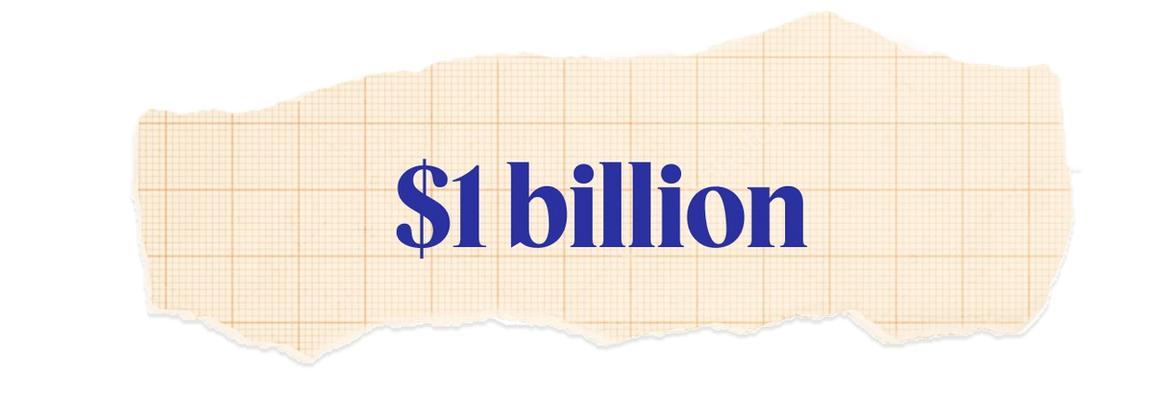 Ethiopia signed a $1 billion financing deal with the World Bank. The funding — made up of a grant and a concessional loan — will go toward enhancing trade competitiveness, strengthening domestic resource mobilization, and stabilizing the financial sector, the country’s finance ministry said. Ethiopia floated the birr currency last year as part of its move to restructure its debt. It has also tried to attract more foreign investment as it opens up its long-closed economy to the private sector. The finance ministry, in a Facebook post, said the financing deal reflected the World Bank’s “continued commitment” to supporting Ethiopia’s economic reform program. |
|
Heat waves’ impact on Africa |
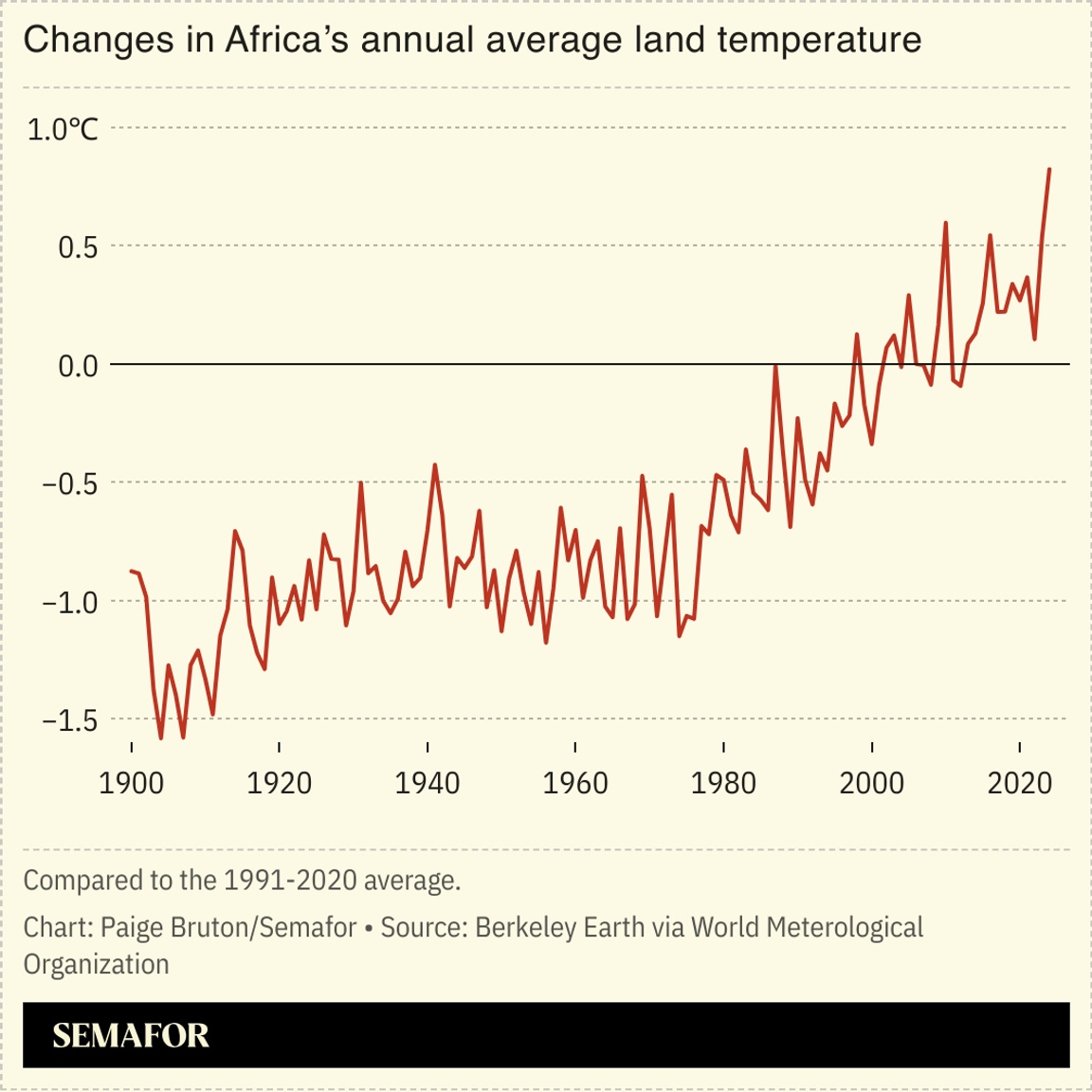 Dozens of African countries spanning much of the continent have seen a brutal heat wave in the past year. Sharp temperature rises caused by climate change affected 42 of Africa’s 54 countries between May 2024 and May 2025, according to a new study: At least 10 nations saw three or more months in that period in which daily temperatures were higher than 90% of the period between 1991 and 2020. The rising temperatures across the continent mirror global trends: Almost 50% of the world’s population experienced at least 30 more days of extreme heat than was experienced in the three decades up to 2020, the report by Climate Central and the World Weather Attribution said. — Alexander Onukwue |
|
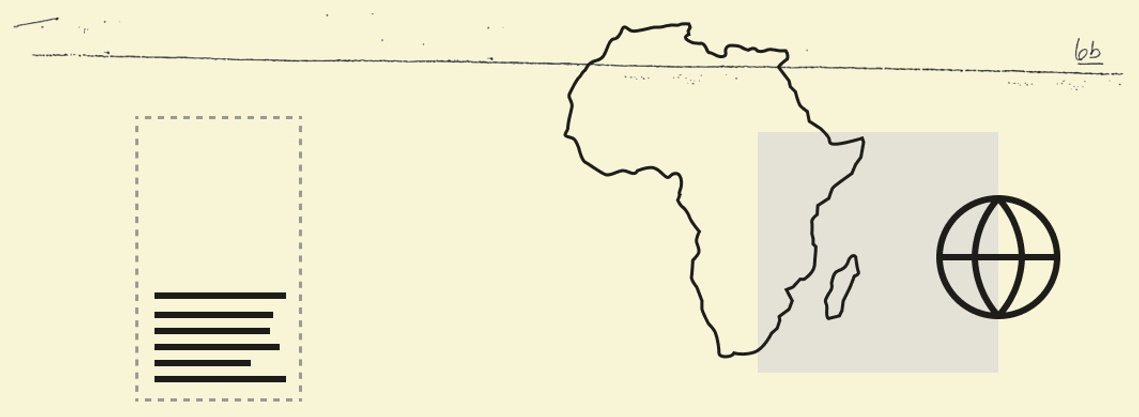 Business & Macro |
|
|